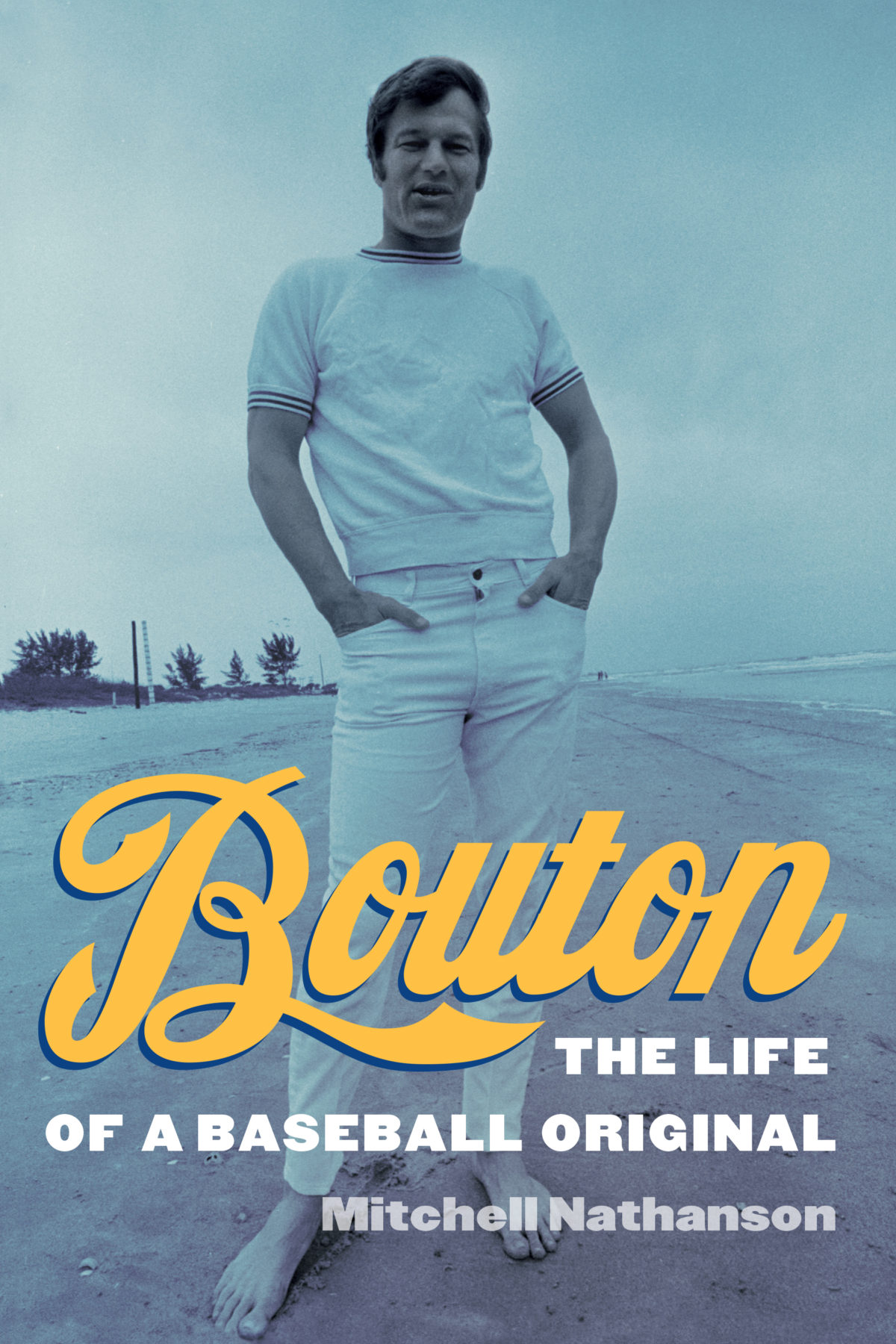The ability of Ball Four to resonate unlike any sports book that had come before led to the swift and furious response to it as soon as excerpted sections hit the newsstands in the June 2, 1970, edition of Look magazine. Even before. The book’s title itself cued readers into the idea that this would be a baseball book like no other. “Sports books always had these upbeat titles, ‘Running to Daylight,’” Bouton said a few years later. “You never heard of a sports book called ‘Running to Darkness.’” During the season he experimented with various titles: “There’s More to Baseball than the Score,” “Take Me Out of the Ballgame,” “View from the Pitcher’s Mound,” “Bullpens I Have Known,” “Hiya Baseball,” “How’s Your Old Tomato?” and a direct reference to Jerry Kramer and Dick’s Schaap’s 1968 football diary—Constant Replay—were a few of the dozens he contemplated but never settled on. But when a drunk woman at the Lion’s Head bar on Christopher Street overheard Bouton and New York sportswriter Len Shecter debating possible downbeat titles (the working title for the book as described in the publication agreement with World was “Baseball Journal”), she slurred her way to literary gold by suggesting a title that evoked failure rather than success: “Whyyyyy don’t you caaaauull it Baaaaaallllll Foooouuuuuurrrrrr?” After rejecting it out of hand, they realized she was on to something.
A swift and furious response was hardly what Peter Ritner, the newly anointed editor-in-chief at World Publishing was expecting. Or even wanted. Ball Four was Ed Kuhn’s, his predecessor’s, baby, not his. Ritner inherited it and wanted nothing at all to do with it. So he effectively buried the book, ditching the previously agreed-upon spring release date and pushing it off into the quiet of November—death to any baseball-themed book. When word of the revised release date reached Bouton and Shecter, they exploded. Bouton and Shecter understood very quickly that Ritner considered their book to be the literary equivalent of body odor and requested to be let out of their contract. Ritner not only refused but frustrated them further by adding an additional $10,000 to their advance if they’d pipe down, which they did, at least until it became clear that Ritner never intended on delivering the $10,000. After much heated back-and-forth—Ritner once referred to Bouton as “an angry Spanish Inquisitor”—Ritner offered to release the book in the spring if Bouton and Shecter would agree to accept only half of the additional $10,000 he had offered earlier. Their relationship deteriorated only further from there. “You have told me on several occasions how difficult it is to be responsible for publishing a best seller,” Shecter wrote to him at one point. “I sympathized.”
Realizing they weren’t going to get much help at all from Ritner, they knew that if the book was going to succeed, they would have to promote it themselves. Fortunately, Shecter was by this time a senior editor at Look and had the ability to green-light sports-themed excerpts for the magazine. He arranged for excerpts to run in consecutive issues—the second one would appear in the June 16 edition. They would receive $13,000 for the excerpts—more than World had paid them for the entire book at that point. World, meanwhile, was planning only a modest run for the book—ten thousand copies, a typical order for one of their trade titles. Shecter worried that Ritner would abandon them—“As far as we could tell,” he wrote Ritner, “you had invested no faith in us at all”—so he began talking up the book even before the initial excerpt hit the newsstands, telling his fellow scribes that the book would blow the lid off the game. After Jerome Holtzman wrote in The Sporting News on May 23 that Shecter told him that the book contained a “homosexual scene at 30,000 feet,” Ritner held his nose and upped World’s print run to thirty-five thousand copies. Shecter kept talking, and soon World had upped the run to fifty thousand copies. And the excerpt hadn’t even hit the stands yet.
In selecting the sections of the book to feature in the excerpts, Shecter fixated on the salacious: a hungover Mickey Mantle hitting a home run; an aging Whitey Ford, aided by Elston Howard, doctoring the ball in the hopes of hanging on just a few years longer; beaver shooting; marital infidelity; greenies; and the drunken kisses between players on the team bus and plane. And that was just in the first excerpt. The magazine hit the stands on Friday, May 29, when Bouton’s Astros just happened to be in New York to play the Mets. It was as if a bomb had been dropped. The shock waves rippled throughout the baseball world and right into Bouton and Norm Miller’s room at the Roosevelt Hotel, where the phone would not stop ringing and Howard Cosell was banging on the door, demanding an interview. This was by design. Shecter knew that he and Bouton were on their own now, working against not only the baseball establishment but their own publisher as well. “The fact is,” Shecter told Ritner, “you didn’t know we had a good book. But I knew we had a good book and we proved it with the furor raised by the publication in Look. Now I knew it was a good book and Look knew it was a good book and the whole country was mashing its teeth.”
A few months earlier another World baseball diary, Detroit Tigers catcher Bill Freehan’s Behind the Mask, was excerpted in Sports Illustrated, and while Freehan caught some heat, it was nothing like this. Like Ball Four Freehan’s title provided a hint of what was inside. “Right there that was a tip-off that you were going to get something you never got before,” Bouton remembered. Freehan’s book fixated on his displeasure with pitcher Denny McLain, and when his excerpt hit the stands the blowback was strong. Freehan wasn’t prepared for it. “Freehan was one of those guys who were happy just to have a book written with their name on it,” Bouton said. When he realized he had crossed a line, he stopped talking about the book at all, hoping it would go away. He’d get his wish a few months thence. “Poor Freehan,” Bouton said a half century later. “He got the heat but none of the credit. He got lost in the shuffle” once the first Look excerpt hit the stands. The moment word spread about what was inside that week’s edition of Look, nobody outside of Detroit cared one whit of what Freehan had to say about Denny McLain.
Inside Yankee Stadium Marty Appel, who had just been named the club’s assistant public relations director that January, recalled that “the reaction was furious from the first day. There were so many points in the book [and highlighted in the excerpt] that were just horrifying to traditional Yankees.” The front office never met to determine how to manage the fallout, Appel recalled—a failure that only exacerbated it. “The response was fast and furious,” he remembered, “because people were asking the parties directly, ‘What did you think of the book?’” This led to an avalanche of quotes and angry denunciations of both Bouton and the book within days of the publication of the first Look excerpt. Many within the organization were most offended by Bouton’s exposure of Elston Howard helping Whitey Ford doctor baseballs. “Everybody really loved [Howard],” Appel recalled. “More than criticizing Mickey Mantle, it was picking on Ellie Howard that really upset people greatly. . . . He was a beloved figure in the clubhouse, and he became sort of a focal point of, ‘Oh, on top of everything, how can you pick on Elston Howard?’”
Very quickly the book became a political statement. “You were either for it or against it,” Norm Miller recalled, which made it different from any sports book that had preceded it. While Bouton knew the book would be controversial, he was unprepared for the degree of disruption it would cause. “He was just a fun guy doing what he thought everybody would like,” Miller said. “I think he had a disjointed view of what was gonna happen. He thought he was doing a service to the world,” but quickly realized that not everyone saw it that way. “I knew he was writing a book from day one because he told me,” Miller continued, “but there had never been anything like that. That’s like saying, ‘Hey, roomie, I’m going to wear a new suit tomorrow,’ and he shows up in a Nehru. I’d say, ‘Holy shit. That’s not a new suit. That’s a new everything.’”
“He became a hot potato in the baseball industry,” Astros pitcher Larry Dierker remembered, “and he wouldn’t have to do anything but have a mild slump and somebody would want to get rid of him.” That fast, Dierker said, “he was a pariah. It was amusing to me how sensitive people were over little things that to me were nothing.”
The day after the excerpt hit the stands Bouton received word that Bowie Kuhn wanted to meet with him in his New York office two days later on Monday afternoon. “Maybe he has read it and just wants to tell me how much he enjoyed it,” Bouton joked with a reporter at the time. Inside, however, he was being torn apart by the potential damage he had caused. “My mom was in tears,” he remembered. “There was a tremendous wave of fury,” and she thought he had sabotaged his career. At one point she tearfully approached Caroline Bouton, his brother Pete’s wife, wondering if she should change her name and whether her friends would ever have anything to do with her again given what was in the excerpt.
Ever since Shecter began talking up the salacious aspects of the book, Bouton received the blowback. “Fuck you, Shakespeare!” Pete Rose yelled from the Cincinnati dugout after Holtzman’s Sporting News column circulated through the Reds clubhouse. Other players made their displeasure known less eloquently. Some 47,193 fans at Shea booed him lustily and in unison when he entered the game in the seventh inning of the first game of a doubleheader that Sunday (they cheered lustily as well after he gave up three hits and three runs in one-third miserable inning of a 14–4 pasting by the Mets). Dick Young devoted three of his Daily News columns to the excerpt and how Bouton would be marginalized once the book itself hit the shelves, famously calling him a “social leper.” Now Kuhn was demanding an audience. Bouton knew that, technically, there was little Kuhn could do about the book (that became clear in the aftermath of Freehan’s book, which Kuhn found similarly distasteful), but, still, the weight of the baseball world was now heavy upon him.
Until he went to the newsstand himself, to pick up the early edition of the next morning’s New York Times. In it was a column by Robert Lipsyte that was the antidote for everything Young had written. “If the excerpts in Look are indicative of the book’s content and style,” Lipsyte wrote, “Bouton should be given baseball’s most valuable salesman of the year award. His anecdotes and insights are enlightening, hilarious and, most important, unavailable elsewhere. They breathe new life into a game choked by pontificating statisticians, image-conscious officials and scared ballplayers.” Bouton then ran down to the Lion’s Head, to meet up with Shecter and toast to their relief that there were people out there who got it. Lipsyte’s column was testament to the reality that the whole world wasn’t made up of Dick Youngs and Pete Roses. Only baseball’s insular one was—the one that knew nothing of life outside of the stadium walls and cared even less about anything not concerned with batting and earned run averages. This was the world Bouton and Shecter were hoping to puncture. Lipsyte’s column showed them that they had succeeded. His meeting with Kuhn was scheduled for 5:00 p.m. the next day. He would now attend it not as a beaten man, but as a conqueror.
Mitchell Nathanson’s biography, BOUTON: The Life of a Baseball Original, will be published May 1 by University of Nebraska Press. You can buy the book here and follow him @MitchNathanson.




La Muerte Peluda says:
BUT IS THERE TELEPORTING?
April 24, 2020 — 9:57 am
Quarantine Idle says:
run that Irishman anti-aging software and Kurt Russell plays Old Ass-Eyes there in the movie
April 24, 2020 — 10:13 am
Braden Maccke says:
It’s STILL the best baseball book.
April 24, 2020 — 10:21 am